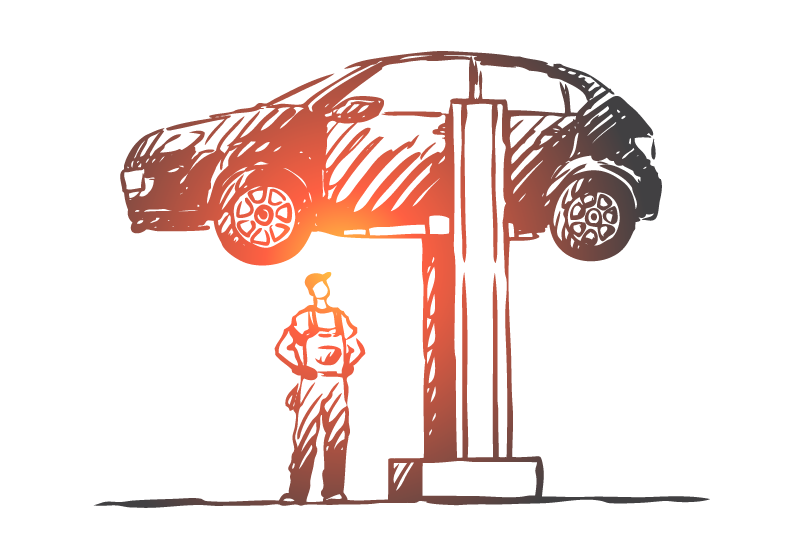3 min read
Why A Lawyer Should Never Try to Shoot from the Hip
As a kid, I always thought any Hollywood cowboy who could shoot from the hip and kill the villain was one tough hombre that no one in their right...
We've crafted solutions tailored to your firm
The world of insurance for law firms can be confusing, and difficult to navigate. We've created this glossary because these common insurance terms should be easy to understand.
3 min read
 David Fratarcangelo, Claims Attorney
:
Jun 18, 2019 12:00:00 AM
David Fratarcangelo, Claims Attorney
:
Jun 18, 2019 12:00:00 AM

We are all human (although non-lawyers may question from time to time whether lawyers are an entirely different species) and even the best lawyers make mistakes. With a little preparation and attention to detail, however, we can minimize the pitfalls that surround the practice of law. In doing so, we can also make our practices more efficient and minimize potential exposure to malpractice claims.
The practice of law has changed in myriad ways over the years and the profession will continue to evolve, but some constants remain. Chief among these are issues such as file documentation, client screening, understanding the attorney-client relationship, and unfortunately, managing the stress that comes with the profession.
When it’s the client’s word against the lawyer’s word, the lawyer almost always loses. If you didn’t document it, chances are a judge or jury will believe that it didn’t happen, and the lawyer will be held accountable. Documenting (“papering”) the file from start to finish with engagement letters and closing letters and memorializing everything in between can prevent clients and others from making assumptions about the nature of the attorney-client relationship. Properly drafted engagement letters can define the scope of the representation…what the lawyer will do and what the lawyer will not do. Closing letters can serve many purposes, such as building information for a conflicts database as well as starting the clock on the statute of limitations for a malpractice claim.
Lawyers need clients in order to make a living, but the manner in which lawyers screen clients can make the difference between making a living and a living nightmare. A lawyer’s duties do not change based upon how well the attorney can or can’t work with a client, so be careful when deciding who to represent.
Develop a standard set of questions to ask the prospective client…can they afford your fees, do they have realistic expectations, have they been through a number of other lawyers before coming to see you? Is it a friend or family member? Remember, friends and family can and will sue you if things go wrong. Develop a standard set of questions to ask yourself…do you have the time, expertise, resources, and staff to take on the representation? Can you effectively work with this client?
Try to learn from your experiences with problem clients. Take the time to question what you could have done to avoid the situation. Lawyers are generally not good at self-reflection, but keep in mind that it’s not always the client, the judge, or the jury that “got it wrong.” Every lawyer has problem clients from time to time, but when problem clients become a frequent or recurring problem, you may want to re-evaluate how you screen your clients.
Know who your client is and take measures to avoid creating “accidental” clients. Just because someone pays your fee that doesn’t make them your client…think of parents paying the fees for their child’s divorce…who is the client in that scenario and to whom do duty and confidentiality apply? Beware of giving legal advice in casual situations…it is best not to mix drinks and discussions about someone else’s legal issues. Avoid giving legal advice on social media or in a public forum like a church or civic organization meeting. It’s not about what you intend, it’s about what other people perceive. Attorney-client relationships don’t require a fee or an agreement…they can be created when a person could reasonably rely and act upon advice given. Knowing who your client is and steering clear of accidental clients can also help avoid conflicts of interest.
Finally, remember to take care of yourself. Law school teaches us how to think like a lawyer, but it does not teach us how to stop thinking like a lawyer. Find hobbies that offer respite from the practice of law, not hobbies that are seemingly part of the practice of law. Golf outings are great, but golf isn’t much of a relief if you break clubs more often than you break par. Don’t put off troubled files…unlike fine spirits, they won’t get better with age. Unplug from work as often as you can and ask friends and colleagues for help when the job seemingly becomes too much. By prioritizing yourself over your practice from time to time, you very well may find that you improve both in ways you never would have thought possible.
David C. Fratarcangelo is a claims attorney for ALPS. He received his undergraduate degree from James Madison University, his master’s degree from the University of Alabama, and his law degree from West Virginia University. Dave began handling claims for ALPS in 2015 and works in the company’s Richmond, Virginia office. Prior to joining ALPS, Dave spent several years in private practice focusing on criminal defense and domestic relations work. Dave also spent two years as a local government attorney. In his spare time you can find Dave playing music in the Richmond area with a number of local groups.

3 min read
As a kid, I always thought any Hollywood cowboy who could shoot from the hip and kill the villain was one tough hombre that no one in their right...

3 min read
A jack is a tool with utilitarian value used for practical and beneficial purposes. We jack up a vehicle to change a flat tire. Or we jack up a...

Background